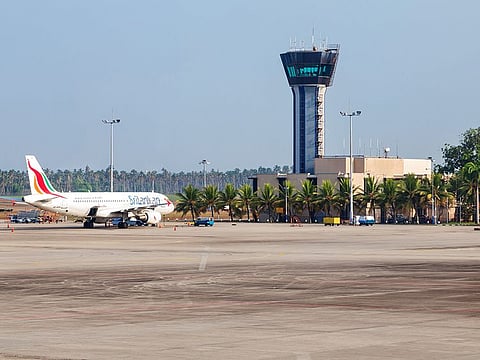UAE’s Sri Lankan expats still plan on summer trips home despite high fares and an economic crisis
Sri Lanka will desperately need travel and tourism to return to normalcy at the earliest

Dubai: Sri Lankan expats in the UAE – a good many of them, in fact – still plan to spend their summer breaks back home despite the steep airfares and cancellation of services by many airlines over the still simmering political and economic crisis there.
Fares on the Dubai-Colombo route have hit highs of Dh2,400 for a one-way ticket, but could drop to Dh1,400 levels by mid-August. It is slightly cheaper to fly from Abu Dhabi – fares are still holding within a range of Dh1,000-Dh2,000. Much will depend on whether those airlines that have severely curtailed their services or cancelled in full bring these back and when. The return of travel and tourism to anywhere close to normalcy – as well as steady remittances – will be vital for the country’s short-term fortunes.
None of which will faze expats such as Gayani Fernando, a former travel consultant, who is planning her fourth trip to the island country this year. “There are many issues like fuel shortages and power cuts, but if your parents are there, you need to go see them irrespective of what’s happening in the country,” said Fernando. “When you step inside a mall or shop, everything seems to be pretty deserted – this is the biggest change we have seen in the last three decades.”
Tourism costs
Fernando, who used to work for a prominent Dubai-based travel firm, said tourists are still willing to fly to the Indian Ocean destination despite the challenges. “There are several small-time businesses and even hoteliers who are trying to provide for the arriving guests,” said Fernando. “You can travel if you want, but the prices would be high because it’s difficult to fetch basic commodities – it will be an expensive visit.”
Fernando’s remarks were echoed by other members of the travel industry. Sudath Kuruppu, managing director of Dubai-based travel agency World Connectionz, said some of the media reports about the crisis impacting Sri Lanka’s travel industry may be slightly exaggerated.

- Sudath Kuruppu, managing director of Dubai-based travel agency World Connectionz
Still high load factors
SriLankan Airlines, which operates 14 weekly flights from UAE, is seeing load factors of 85 per cent on the route, according to a company spokesperson. The airline did not respond to a Gulf News query about its future schedule.
Sri Lanka has been dealing with a lack of essential goods, including fuel and medicines, for months, after its foreign exchange reserves ran dry because of mismanagement and the impact of the COVID-19 pandemic. Due to the fuel shortage, airlines have begun cancelling their services to Sri Lanka and the ones still operating are making stops at South Indian hubs to re-fuel their planes before flying back.
Route launch postponement
Wizz Air Abu Dhabi has postponed the launch of its flights to Mattala due to the current crisis. “The conditions deteriorated to an extent where we felt it would be prudent to postpone that decision, but Mattala is very much still in our plan,” said Owain Jones, Development Officer at Wizz Air, in an interview with Gulf News earlier. “Once we see the operating conditions supporting that route, we are keen to start as soon as we can.”
Risk factor
For most Sri Lankans, a trip back home is not worth the risk.

- Shehara Rizly, a UAE-based Sri Lankan expat
Sri Lanka’s parliament on Wednesday extended a state of while trying to resolve the country’s worst economic crisis.
Tourism hit
The political uncertainty has already taken a toll on Sri Lanka’s tourism sector, which was seeing faint signs of recovery after the pandemic. The number of international tourist arrivals to Sri Lanka in June plunged almost 69 per cent month-over-month to 32,856, according to official data. “This could be a result of the effects of the current economic and political situation in Sri Lanka, and the gradual cessation of the peak travel season,” said the report. As of June 30, 411,377 international tourists had visited Sri Lanka in 2022. India was the largest source of tourist visits to Sri Lanka with 28 per cent of the total traffic received in June. The UK and Australia accounted for 14 per cent and 10 per cent of the total traffic, respectively, while Germany and Canada accounted for 10 per cent and 9 per cent. The Sri Lankan tourism board also blamed the rising inflation in Europe for the drop in numbers. “The rising inflation in the European region due to the war in Ukraine too could have detrimental effects on tourism in Sri Lanka,” it said.
Sign up for the Daily Briefing
Get the latest news and updates straight to your inbox





